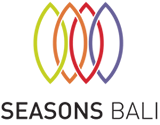Studies have shown that if you were to gather the salaries of the five friends you are closest to, the average of those salaries would amount to your own (or at least, extremely close to it). It’s the same with anything else, including lifestyle (such as identifying as a “partier” or a sober person), values, and hobbies.
If the friends that you surround yourself with are not on a progressive life path, you are bound to be unable to push past the boundaries all of them have set for themselves.
Because we are human, we tend to reflect who we choose to let closest to us. Friends that are a terrible influence on your life and sobriety goals can drag you down, and keep you there, and it’s not coldhearted for you to admit it.
Your company is essential. If you want to change yourself, part of doing so is being sure that the people surrounding you are going in the same direction you are aiming to head in – that they reflect the values most important to you, lift you higher, and support your dreams. If you want to get sober, but you find yourself pulled into the same situation again and again by your friends, you may need to take a cold, hard look at the group of people surrounding you. A hindrance group can easily be disguised as a support group of people who claim to care about you and yet do not act in your best interest.
Friends do have substantial influence over us because humans are social creatures with the need for companionship, connection, understanding, and close emotional bonds. Without these things, depression can present itself. For example, when we are lonely, or our lives are void of authentic connection, we tend to get sick more easily, We’ve prepared five warning signs that your friends may be making your addiction worse or preventing you from moving forward on your sober journey.
1. They (overtly or covertly) make you feel bad for wanting to make a change
If your friends treat you differently – event subtly – when you mention wanting to make a change in your life, such as getting sober or drinking less, then they probably aren’t your real friends. It is a sad truth, but if your friends don’t support you in something you believe is going to lead you to more fulfilment and better health, then they aren’t looking out for you or your happiness. Part of loving a friend is wanting their happiness almost as much, if not as much, as your own, no matter what that takes.

2. Alcohol and drugs must be involved in every activity
If you cannot think of the last time you hung out with your friends do anything with your friends without drugs and alcohol being involved, then you should probably try to decipher whether you can have genuine fun with your friends outside of just partying. If drugs or alcohol must be included in every activity for your friends to want to participate, likely, your friends are probably making your addiction worse because they, themselves, can’t stand being sober for some reason.
3. They justify your bad behaviour
Honesty is a vital part of any relationship, including a friendship. We hate to break it to you, but if you can’t rely on someone to be direct and honest with you about how your behaviour may be harming you or how your actions may be working against your own best interest, then you can’t rely on them for anything except some cheap sympathy and small talk. Blind support isn’t love- it’s enabling, shallow, and will not help you grow. And when someone denies that you are behaving in a way that harms you, it probably also means that they cannot see their flaws as well.
As we mature and grow older, we begin to realize that “support” from friends doesn’t just mean agreeing with each other all the time and justifying each others’ unhealthy behaviours. It means calling us out when we aren’t doing what benefits us. It means setting boundaries with love. It means showing us our blind spots so that we can better ourselves. It means saying the hard things in the hope that they will spark inspiration for someone to want to grow in ways they haven’t before.

4. They expect you to justify their bad behaviours
Picture this: your friend comes to you with a distressing situation that appears to be mostly their fault. You, in turn, give them an honest answer that involves gently calling them out on their mistakes. But then they freak out.
This is not what someone would call a “safe” relationship. Quite the opposite, this relationship is one that is built on dishonesty. When a friend asks for honest advice on anything from their life choices to the type of shoes they should buy, and then turn around and get angry at you for voicing your genuine opinion or concern, then they are probably unable, to be honest with themselves, and therefore you. This type of thinking is what contributes to addictive behaviours and the enabling of addictions in both parties.
5. When you get sober, they’re not there anymore
When you decide to stop using substances, and your friends tend to “fall off” and pull their best ghost moves on you, then they probably are making your addiction worse by withholding their support when it doesn’t serve their own addictive behaviours.
If your friends exhibit any of these behaviours, it may be a sign that you need to reevaluate if they are indeed your friends. Your crowd should be a group (or even just one or two) friends that elevate you, support you, and show you where you are messing up so that you have the chance to fix it. Real friends don’t tear down what is right for you or sabotage your efforts to change your life. Addiction can usually mean life or death, and if your friends are making it worse, it is time to do whatever is necessary to save your life.





